Elton John says HIV 'end in sight' in West
- Published
Elton John says the "end is in sight" for HIV in the West
The end of HIV "is in sight" in Western countries, but increased testing is vital, Sir Elton John has said.
The music star said early testing could save "millions of pounds each year" for the NHS, in an interview with the BBC's Victoria Derbyshire programme.
His charity, the Elton John Aids Foundation, has offered to finance HIV testing in Lambeth, south London, which has the UK's highest HIV rate.
The PM says the UK is driving advances in HIV prevention and treatment.
About 40% of people diagnosed with HIV in 2014 were diagnosed late, according to Public Health England (PHE) statistics, which Prime Minister Theresa May described as having "a significant impact on their long-term prognosis".
Sir Elton said early testing was essential to ensure people were "diagnosed, they're put on treatment, they won't spread the disease - and we'll know where we stand with the population".
He referenced a project his foundation had implemented at King's College Hospital in London, which allows individuals to be tested for HIV at the same time as receiving a blood test, as an example of how more people can be checked for the disease.
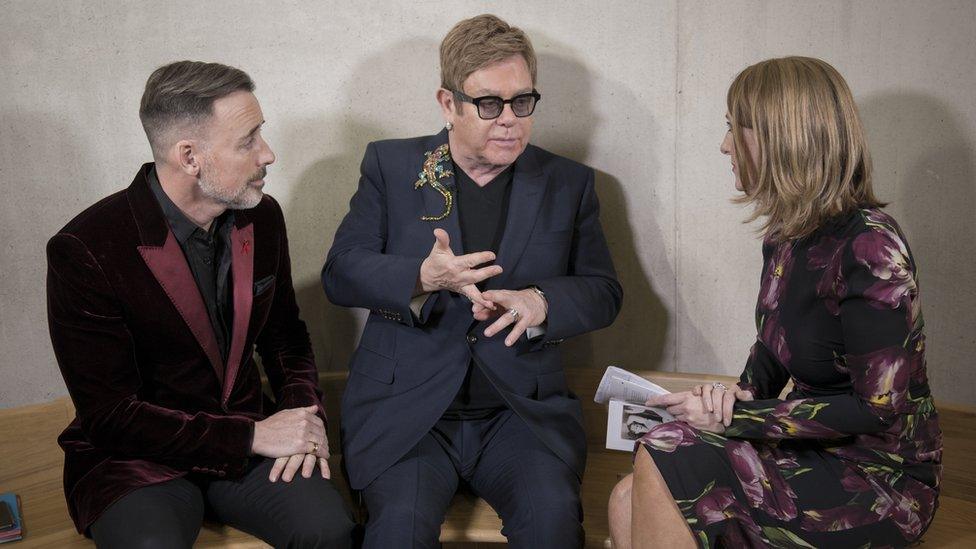
David Furnish and Sir Elton say they want to work with the government to improve HIV testing
"Most people are willing to have that, and otherwise they wouldn't have a HIV test," he said. "It is something we want the government to get more involved in."
He added: "We can solve this, we can stop this disease from spreading."
On Thursday, NICE announced new guidance aimed at increasing testing in people with undiagnosed HIV in England.
The updated guidance recommends all patients in areas with "high" and "extremely high" rates of HIV should be offered a test on admission to hospital, if they have not previously been diagnosed with HIV and are undergoing a blood test for another reason.
In extremely high-rate areas, hospitals should offer the tests even if they are not having blood tests as part of their care, NICE recommends.
But councillor Izzi Seccombe, of the Local Government Association, said achieving what NICE was asking was going to be difficult.
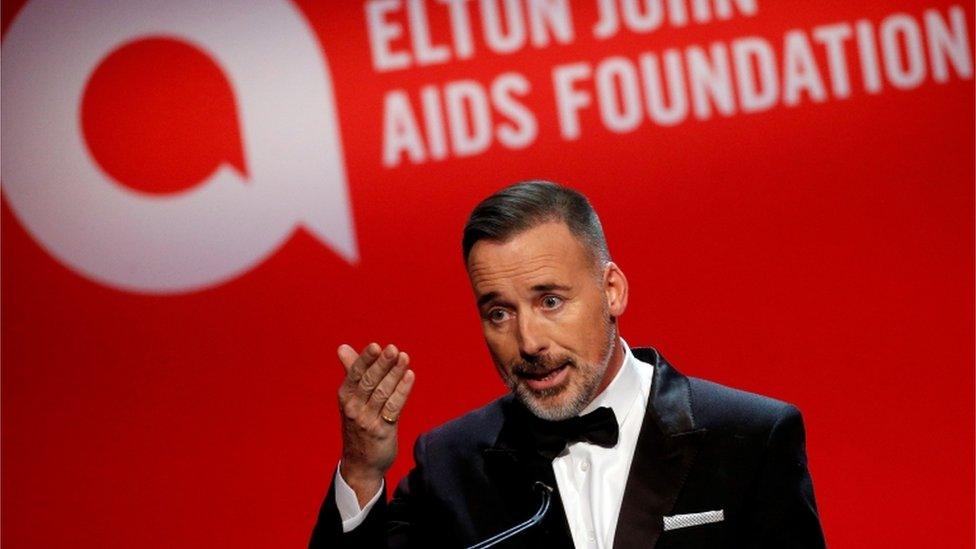
David Furnish believes everyone should have an HIV test
"The strain placed on councils by the cuts by central government to public health budgets would make commissioning HIV testing in all surgeries and hospitals in high and extremely high-risk areas an unaffordable burden.
"Despite these limited resources, testing those in high-risk areas must always be a priority. Councils are commissioning HIV testing in a variety of settings."
The Department of Health maintained councils had been provided with sufficient funding.
David Furnish, Sir Elton's husband and chairman of the Elton John Aids Foundation, said that he hoped that by funding testing in Lambeth - the UK local authority with the highest rate of HIV - they would help councils to see that "short-term investment pays out handsomely in the long run".
The British HIV Association believes that testing for HIV is "very cost effective" and that "deaths due to late diagnosis are completely preventable through excellent treatments".
But, Mr Furnish said, it was vital to combat the stigma surrounding HIV, which Sir Elton described as "our biggest obstacle" to beating the disease.

Sir Elton praised the prime minister for her support of World Aids Day, and said he had met Health Secretary Jeremy Hunt.
"We're wanting to work with him at close... because unless you work together there's no point," he said.
It is estimated that 103,700 people are living with HIV in the UK and 17% of people with the virus are unaware of their infection, so risk unintentionally passing it on to their sexual partners.
'Scary time'
Asked by Victoria Derbyshire about his thoughts on the forthcoming presidency of Donald Trump, in relation to HIV, he urged governments around the world to "keep their mandate about Aids".
He said HIV would "balloon again and become another catastrophe" were this not to happen.
"If governments in America say 'we're going to stop funding', it's a very scary time and it would be a tragedy for the world," he added.
Sir Elton was also questioned about the possibility of meeting Russian President Vladimir Putin to discuss gay rights in the country - the pair have previously spoken by phone, but a meeting between the two was postponed in May.
The singer said he was "very hopeful" it would happen, but added: "He's a busier man than I am."
The BBC's Victoria Derbyshire programme is broadcast on weekdays from 09:00-11:00 on BBC Two and the BBC News channel.
- Published1 December 2016
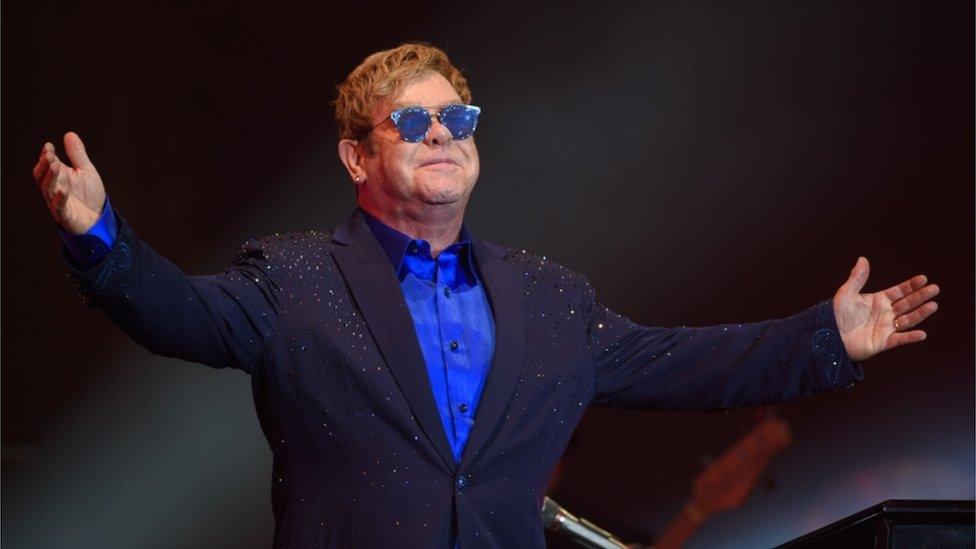
- Published1 December 2016
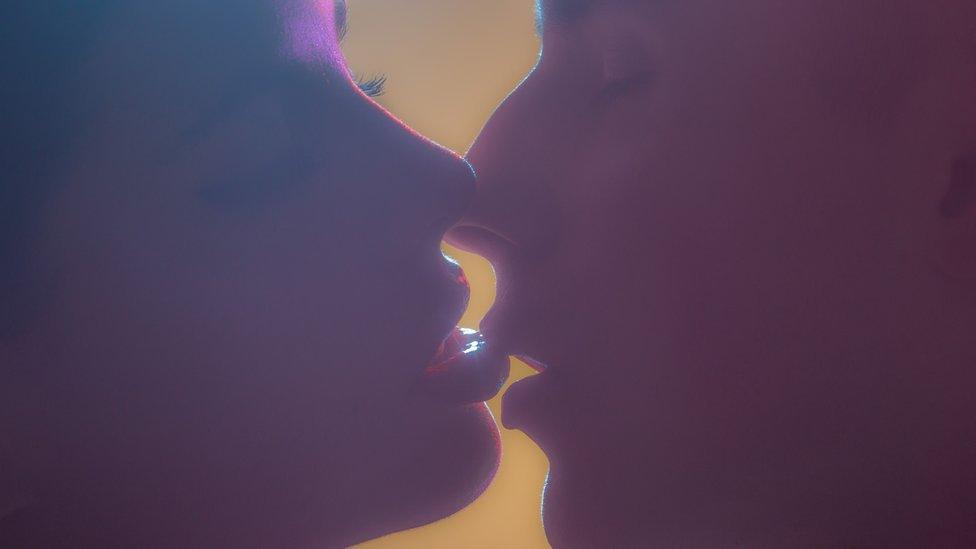
- Published30 November 2016
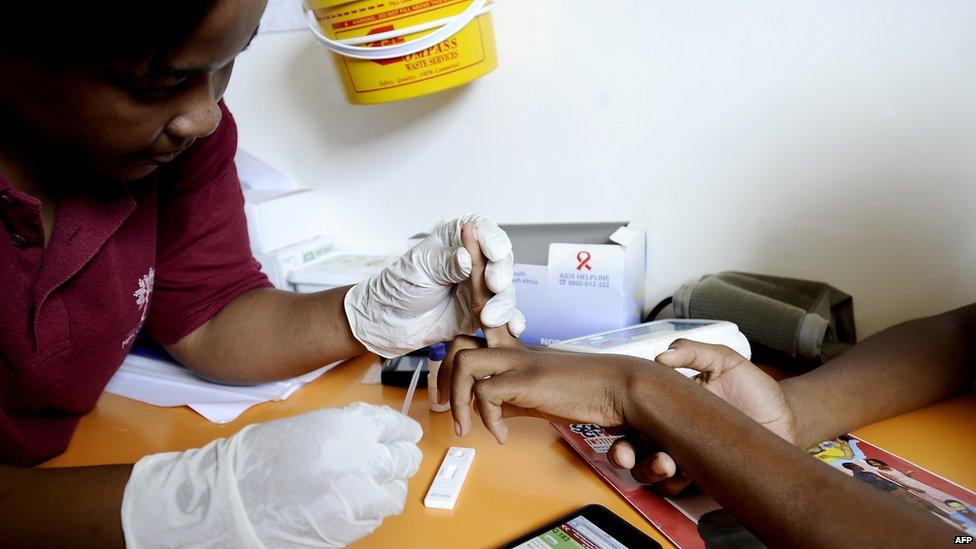
- Published3 October 2016
- Published24 August 2016
